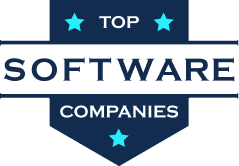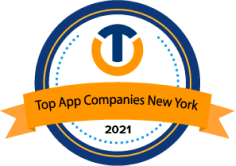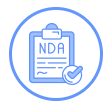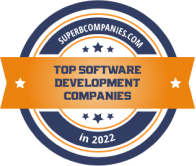10 Essential Features to Include in Your Custom CMS Development

Content Management Systems (CMS) have revolutionized the way websites are built, managed, and updated. While there are numerous off-the-shelf CMS platforms available, there are cases where a custom CMS development is the better choice.
Custom CMS development empowers businesses to tailor the system to their specific needs, resulting in enhanced control, performance, and user experience. In this blog, we will explore the 10 essential features that should be included in your custom CMS development project.
User Authentication and Role-based Access: Cornerstones of Secure CMS Management
In the realm of custom CMS development, user authentication and role-based access control stand as pivotal safeguards, ensuring the security, integrity, and control operation of the system.
User Authentication: Ensuring Identity Verification
User authentication establishes the first line of defense against unauthorized access. By verifying the identity of users, it prevents malicious infiltration. Several aspects ensure robust authentication:
- Password Security: Utilize techniques like hashing and salting to secure stored passwords.
- Multi-Factor Authentication (MFA): Employ MFA for an extra layer of security.
- Password Policies: Enforce stringent password rules for complexity and regular updates.
- Account Lockout: Implement mechanisms that temporarily lock accounts after multiple failed login attempts.
Role-based Access Control (RBAC): Tailoring Permissions
RBAC tailors system access based on user roles, controlling the actions they can perform. Delve into RBAC’s elements:
- User Roles: Define roles like content creators, editors, and administrators.
- Permission Granularity: Assign precise permissions for specific tasks.
- Hierarchy of Roles: Establish roles hierarchically for efficient permission inheritance.
- Dynamic Role Assignment: Permit real-time role changes to match evolving responsibilities.
- Auditing and Logging: Implement audit logs to record actions and permissions changes.
- Custom Role Creation: Allow tailored role creation for unique requirements.
Robust user authentication and RBAC fortify data security, control, and compliance, making them indispensable features in custom CMS development.
Intuitive User Interface (UI): Elevating User Experience

A user-friendly and intuitive interface is pivotal for a successful custom CMS. An intuitive UI ensures that users can effortlessly navigate, manage, and create content within the system. Here’s a closer look at why an intuitive UI is paramount:
- Navigation Ease: Streamline user navigation by employing a clear and organized layout, ensuring that users can find features and content with ease.
- Simplicity: Avoid clutter and unnecessary complexity. Present essential options prominently and relegate advanced functions to accessible sub-menus.
- Consistency: Maintain visual consistency throughout the CMS, from color schemes to typography, fostering familiarity and reducing cognitive load.
- Drag-and-Drop Functionality: Incorporate drag-and-drop interfaces for arranging content elements and media files, enhancing content customization.
- Responsive Design: Ensure the UI is responsive across devices, adapting seamlessly to various screen sizes, thus delivering a consistent experience.
- User Feedback: Implement interactive elements such as tooltips and visual cues to guide users through actions and processes.
- Accessibility: Adhere to accessibility standards, making the CMS usable by individuals with disabilities.
Incorporating an intuitive UI enhances user satisfaction, increases productivity, and minimizes the learning curve, making your custom CMS a user-centric solution.
Content Creation and Editing Tools: Fostering Creativity and Control
Central to a custom CMS’s functionality is its content creation and editing tools. These tools empower users to craft engaging and dynamic content with efficiency and precision. Here’s a deeper exploration of why robust content creation and editing tools are essential:
- Rich Text Editing: Provide a feature-rich text editor with formatting options like bold, italics, headings, and bullet points, ensuring content customization.
- Media Embedding: Enable seamless integration of images, videos, and other media directly into content, enriching user experience.
- Content Structuring: Incorporate tools to create well-organized content through paragraphs, headings, subheadings, and lists.
- Clean HTML Output: Ensure the editor generates clean and valid HTML code to prevent rendering issues across different devices and browsers.
- Versioning: Implement version control to track content changes, enabling easy revision and preventing accidental data loss.
- Collaboration: Enable real-time collaboration between users, permitting simultaneous editing and streamlined content creation workflows.
- Undo/Redo: Provide a safety net with undo and redo functionalities, allowing users to backtrack or restore changes.
A robust content creation and editing suite empowers users to produce high-quality content while maintaining control and preserving the integrity of the CMS.
Media Management: Organizing and Enhancing Visual Content

Efficient media management is crucial within a custom CMS, as it facilitates the seamless integration and presentation of visual assets. A comprehensive media management system empowers users to organize, optimize, and display images, videos, and other media files effectively. Here’s why media management is a cornerstone feature:
- Automated Optimization: Implement automated image optimization to enhance page load times and user experience.
- Bulk Upload: Enable users to upload multiple media files simultaneously, saving time and effort.
- Image Editing: Incorporate basic image editing capabilities like cropping, resizing, and applying filters, all within the CMS.
- Gallery and Sliders: Offer features to create galleries, sliders, and other dynamic media displays to engage users visually.
- Alt Text and Descriptions: Ensure users can add alt text and descriptions to images for accessibility and SEO purposes.
- Responsive Handling: Optimize media for responsiveness across various devices and screen sizes.
- Storage and CDN Integration: Integrate with cloud storage and Content Delivery Networks (CDNs) for efficient media distribution.
By providing comprehensive media management tools, your custom CMS enhances content quality, visual appeal, and user engagement.
SEO and Metadata Management: Optimizing for Online Visibility
In the digital landscape, SEO and metadata management are vital components of a custom CMS, contributing to a website’s visibility in search engines and enhancing user experience. Here’s a closer look at the significance of incorporating robust SEO and metadata management features:
- Meta Titles and Descriptions: Enable users to craft compelling meta titles and descriptions for each page, enticing users and improving click-through rates in search results.
- URL Optimization: Generate clean and SEO-friendly URLs that include relevant keywords and accurately reflect the page’s content.
- Alt Tags for Images: Provide fields for adding descriptive alt text to images, enhancing accessibility and helping search engines understand image content.
- XML Sitemap Generation: Automate the creation of XML sitemaps to aid search engines in crawling and indexing website content.
- Canonical URLs: Allow users to specify canonical URLs to prevent duplicate content issues.
- Structured Data Markup: Integrate schema markup to provide search engines with additional context about content, improving rich snippet display.
By incorporating these SEO and metadata management features, your custom CMS becomes a powerful tool for enhancing online visibility and user engagement.
Responsive Design and Mobile Optimization: Adapting to Every Device

In today’s mobile-centric era, responsive web design and mobile optimization are indispensable facets of a custom CMS. These features ensure that your website provides a consistent and user-friendly experience across diverse devices. Here’s why prioritizing responsive design and mobile optimization is imperative:
- Device Agnostic Layouts: Create layouts that adapt seamlessly to various screen sizes, maintaining visual integrity and usability.
- Flexible Images and Media: Implement techniques like fluid images and media queries to ensure that visual content resizes appropriately.
- Touch-Friendly Interfaces: Craft touch-friendly elements, optimizing navigation and interactions for touch-based devices.
- Performance Optimization: Streamline code and assets to enhance page load times on mobile connections.
- Mobile-First Approach: Develop with a mobile-first or mobile friendly CMS mindset, ensuring content and features are designed for mobile users first.
By integrating responsive design and mobile optimization, your custom CMS guarantees a seamless and engaging experience for users, regardless of the devices they use.
Custom Content Types and Taxonomies: Structuring Content Effectively
Within a custom CMS, the ability to define and manage custom content types and taxonomies is a crucial aspect that empowers content creators and administrators to organize and present information in a structured and user-friendly manner. Here’s why including these features is essential:
- Content Flexibility: Allow users to create diverse content types, such as articles, events, products, or case studies, tailored to their specific needs.
- Taxonomy Creation: Provide tools for creating custom taxonomies, like categories, tags, or labels, enabling content classification and easy retrieval.
- Consistency: Standardize content presentation across the website by associating specific taxonomies with relevant content types.
- Filtered Views: Enable users to filter content based on taxonomies, enhancing user experience and content discovery.
By incorporating custom content types and taxonomies, your custom CMS enhances content organization, user navigation, and overall website usability.
Version Control and Revision History: Safeguarding Content Integrity
Version control and revision history are indispensable features within a custom CMS, ensuring the integrity of content and enabling efficient collaboration. These features offer a detailed record of content changes over time. Here’s why version control and revision history are crucial:
- Content Tracking: Keep track of all content changes, allowing users to review, compare, and revert to previous versions if needed.
- Collaboration Facilitation: Enable multiple users to collaborate on content creation while maintaining a clear record of each contributor’s changes.
- Error Correction: Provide a safety net to rectify inadvertent content changes or deletions, mitigating the risk of data loss.
- Auditing and Accountability: Maintain accountability by tracking who made specific changes and when fostering transparency.
By implementing version control and revision history, your custom CMS ensures content accuracy, minimizes errors, and supports effective teamwork.
Multilingual Support: Reaching a Global Audience

Multilingual support is a pivotal feature within a custom CMS that caters to diverse audiences across the globe. This feature enables content to be presented in multiple languages, enhancing user engagement and accessibility. Here’s why incorporating multilingual support is crucial:
- Language Variants: Allow users to create content in different languages, expanding your website’s reach to a broader audience.
- Language Switching: Provide users with an intuitive way to switch between languages, ensuring a seamless browsing experience.
- Localized Content: Tailor content for specific regions or cultures, considering nuances and preferences.
- SEO Benefits: Expand your website’s search engine visibility by catering to users who search in different languages.
By integrating multilingual support, your custom CMS empowers you to connect with global audiences and foster a more inclusive online presence.
Analytics and Insights: Informed Decision-Making
Analytics and insights play a pivotal role within a custom CMS by providing actionable data that drives strategic decisions and content optimization. This feature empowers administrators and content creators with valuable information about user behavior and content performance. Here’s why analytics and insights are vital:
- User Engagement: Track metrics like page views, bounce rates, and session durations to gauge user engagement and identify popular content.
- Conversion Tracking: Monitor conversion rates to assess the effectiveness of calls to action and content goals.
- Traffic Sources: Understand where your website traffic originates, allowing you to optimize marketing efforts.
- Content Performance: Analyze which content resonates with users and refine your content strategy accordingly.
- Data-Driven Decisions: Utilize analytics to make informed decisions about content updates, improvements, and overall website enhancements.
By incorporating analytics and insights, your custom CMS empowers data-driven decision-making, fostering continuous improvement and enhancing user satisfaction.
Conclusion
Developing a custom CMS demands meticulous planning to empower your organization in content creation, management, and optimization. From robust user authentication and an intuitive UI to advanced content creation tools and streamlined media management, each facet contributes to a cohesive user experience. SEO capabilities elevate your online visibility, making your digital footprint more discoverable.
Remember, the success of your custom CMS project hinges on aligning features with your unique business objectives and user needs. To navigate this journey effectively, consider engaging with professionals such as Imenso Software. Their expertise can help you shape a seamless digital solution. In essence, a well-crafted custom CMS, tailored to your needs, serves as the bedrock of your online presence and user engagement.
We’re honored to mention that our efforts have been recognized by renowned B2B review and research platforms such as GoodFirms, Clutch, MirrorView, and many more.
Want more information about our services?
Similar Posts

Enhance Your Business Website: Top 10 Must-Have WordPress Plugins
“Are you harnessing the full potential of your online presence to propel your business forward in today’s digital landscape?” In a world where over 40% of websites are powered by WordPress, it’s evident that businesses are turning to this versatile platform to establish their online presence. WordPress’s dominance isn’t just by chance; its robust ecosystem […]...
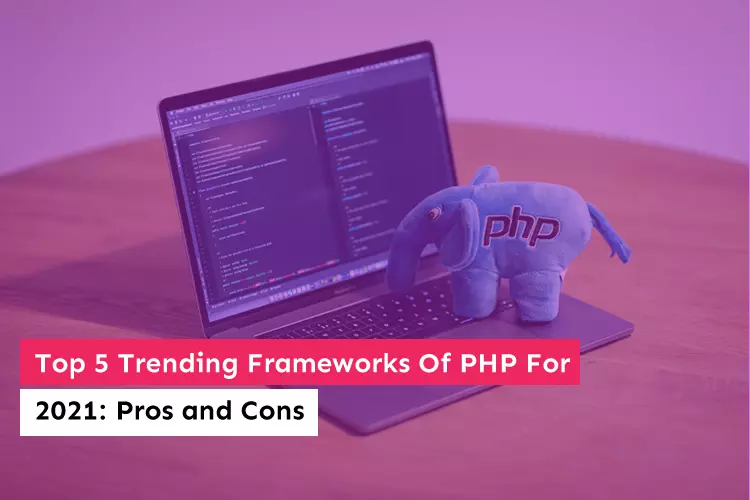
Top 5 Trending Frameworks Of PHP For 2021: Pros and Cons
Web development tools and frameworks are aplenty, and you can pick from the available options for your business needs. There are free as well as commercial tools for web application and site development nowadays. However, PHP happens to be a long-time favorite in this sector. Thousands of web developers prefer PHP over other contenders. The […]...

App Design – How We Build Better Applications With Behavioral Psychology & Design Principles
Hundreds of thousands of apps, no-code tools, digital products, and millions of websites are available over the internet. While some are great successes, others don’t even exist for a large population. Only a few products succeed in hitting their target market and explode, while others live in the abyss of the internet. ...


